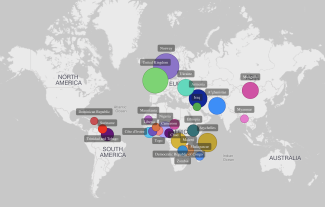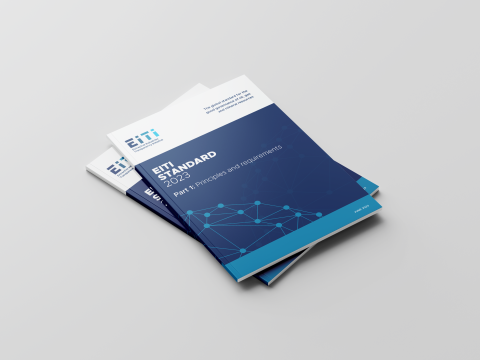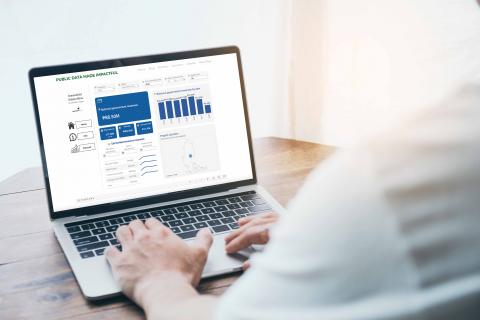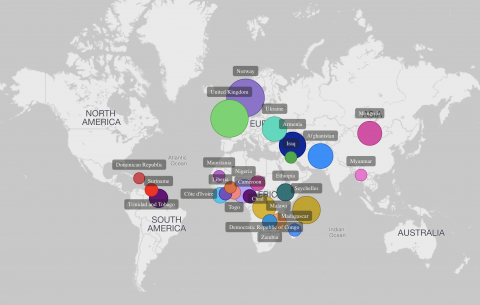
Systematic disclosure
Reporting data at source
Transparency should be an integral and systematic part of extractive sector management. EITI implementing countries are increasingly disclosing data at source – through government and company databases, online registries, websites and portals – providing citizens and stakeholders with accessible and up to date information on the sector.
When governments make the transition to systematic disclosure, EITI reporting becomes simpler and more cost-effective. This approach, also known as mainstreaming, enables stakeholders to shift their focus from data collection to data use, analysis and debate.
For companies, disclosing data at source helps build trust by improving their social license to operate, setting expectations with communities and citizens and supporting a level playing field for business.
In accordance with the EITI open data policy, systematic disclosure is a default expectation for EITI reporting. Furthermore, in cases where transparency is widespread and data quality is of sufficient quality, countries may seek EITI Board approval to systematically disclose data without reconciling payment data in accordance with EITI Requirement 4.9.
Tracking progress
We regularly monitor country-level progress on systematic disclosure of extractive sector data through a dynamic tool, which enables users to track how countries fare in mainstreaming specific disclosure requirements of the EITI Standard.

News, blogs and events

EITI launches 2023 EITI Standard

Who benefits? Harnessing company ownership data to reduce corruption

Tackling the energy transition with data

Why transparency matters for fragile, resource-rich states: the case of Afghanistan

What’s next for the extractive sector in Norway?

Transparency at source: How do countries fare?

Opening up Madagascar’s extractives sector

Iraq: EITI’s biggest OPEC member on track to systematic transparency
Systematic disclosure in action
Kazakhstan
In Kazakhstan, EITI reporting forms are incorporated into an online platform hosted by the Ministry of Energy. After undertaking an annual independent audit in the first quarter of a calendar year, subsoil license holders file their data to the EGSU system. Company and government data is presented in machine-readable format and can be downloaded from the online platform. This system helped Kazakhstan to ensure timely disclosure of extractives data. A mainstreaming feasibility study was prepared in 2017 to inform further progress in systematic disclosures.

Mexico
In 2020, the Mexican government launched Data México, a portal which systematically discloses data on various economic activities including mining, such as employment, production, investment and financing. The government also launched GeoInfoMex, a website with detailed information on mining concessions and licenses including the commodities, duration, geographical data and companies holding licenses.

United Kingdom
In 2020, the UK government published its EITI Report online in the form of an annual review which complemented systematic, online disclosures. The review covers extractive sector payments from 2019, setting an example for timely reporting. Nearly all EITI-required data is disclosed systematically, apart from data on subnational contributions.

Strengthening public oversight
EITI multi-stakeholder groups (MSGs) oversee EITI implementation and disclosures. Where data is routinely disclosed, MSGs can maintain strong sector oversight by focusing their efforts on gaps in government and corporate reporting systems and issues that are matter most for stakeholders. A report commissioned by the EITI provides recommendations on how to bridge the gap between current systems and routine reporting.
This approach is one of the most important steps that implementing countries can take in delivering on the original purpose of the EITI – publishing data in a way that enhances the value of resources for citizens.
To this end, the EITI is undertaking a project to pilot alternative approaches to reporting, encouraging MSGs to use data to undertake analysis, influence decision makers and direct information to a wider set of users.